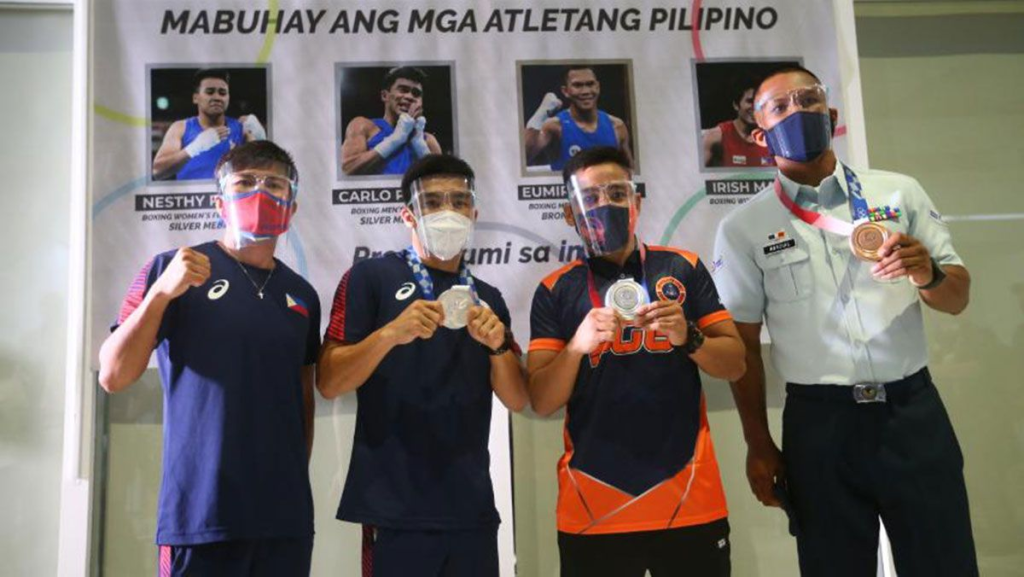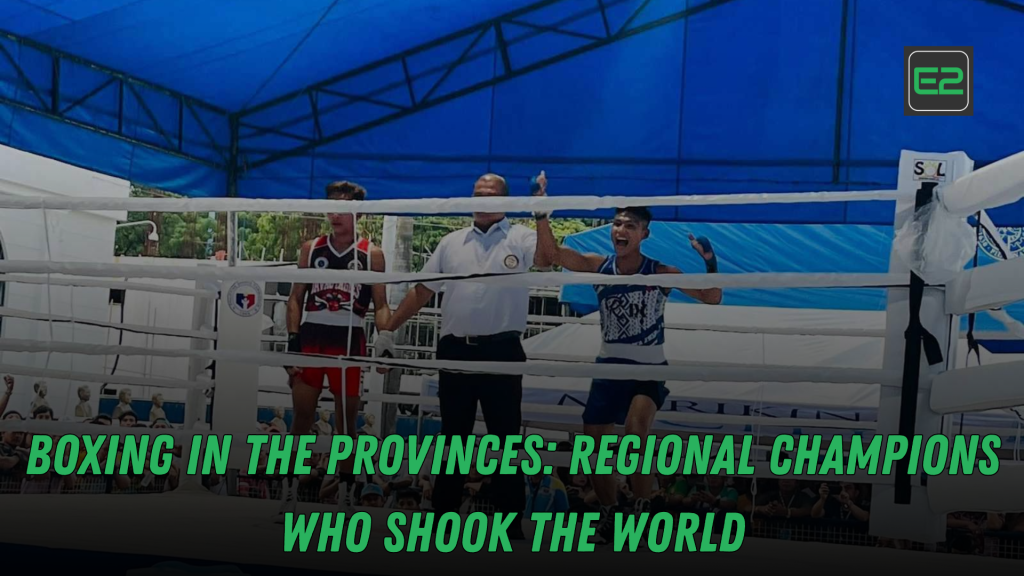Table of Contents
Where Grit Meets Glory
BOXING IN THE PROVINCES: In the world of Philippine boxing, much of the spotlight shines on Manila gyms and big-name promotions. But beyond the capital lies a rich, gritty, and relentless boxing culture rooted deep in the boxing in the provinces. Here, in humble barangay gyms and makeshift rings, regional champions are forged—not just through training, but through hardship, hunger, and heart.
This article shines a spotlight on the provincial boxing scene, exploring how it continues to produce some of the Philippines’ most remarkable world champions. We’ll also uncover the reasons why these provincial fighters are so revered both locally and on the international stage.
1. The Roots of Boxing in the Provinces
A Cultural Tradition of Toughness
Boxing in the provinces isn’t just a sport—it’s a way out. In areas where economic opportunity is limited, boxing becomes both a passion and a potential ticket to a better life.
- Many boxing in the provinces gyms are located in Visayas and Mindanao, known for producing tough, aggressive fighters.
- Training often begins at a young age, with local tournaments held during fiestas or community events.
- These fighters are driven by more than glory—they fight for family, survival, and pride.
Popular Regions for Boxing Talent
- General Santos City (home of Manny Pacquiao)
- Bacolod & Negros Occidental
- Cebu
- Zamboanga
- Bohol
2. Legendary Fighters Who Rose from Boxing in the Provinces
Manny Pacquiao (General Santos City)
No list would be complete without the Pambansang Kamao himself. Pacquiao’s journey from the streets of GenSan to global superstardom is now folklore. His early days fighting for 500 pesos per bout in local events laid the foundation for his historic career.
- World Titles in 8 weight divisions
- Known for his relentless pace and footwork, honed in makeshift rings and mountain training in Sarangani
Nonito Donaire (Talibon, Bohol)
“The Filipino Flash” may have honed his skills in the U.S., but his Visayan roots are evident in his toughness and work ethic. Donaire brought pride to the islands with his world titles and signature left-hook knockouts.
- Multiple-time world champion
- Noted for combining Filipino grit with international technique
Donnie Nietes (Murcia, Negros Occidental)
Quiet but deadly, Donnie “Ahas” Nietes is one of the most underrated Filipino boxers. With over a decade as world champion, Nietes carved his name into history—without much fanfare, but with undeniable dominance.
- Longest-reigning Filipino world champion
- Emphasized defensive mastery and technical precision
CSGO Shakes Up the University Tournaments: Community Spotlight

3. Why Boxing in the Provinces Fighters Excel
1. Hunger & Resilience
Unlike boxers from wealthier backgrounds, provincial fighters are often driven by necessity. The desire to change their circumstances fuels their commitment.
- They train in less-than-ideal conditions, often without modern equipment.
- Sacrifices—like skipping meals or walking miles to training—are part of daily life.
2. Natural Conditioning
The rural lifestyle provides natural strength and endurance training. From farm work to fishing, provincial life builds physical resilience and discipline—qualities essential in boxing.
3. Community Support
Local communities rally behind their fighters. A boxer’s win is seen as a victory for the entire barangay. This support helps fuel fighters through tough times, creating a sense of accountability and belonging.
4. The Role of Local Gyms and Coaches in Boxing in the Provinces
Backyard Gyms, Big Dreams
Many top provincial boxers began in backyard gyms—spaces with minimal gear but maximum heart.
- Trainers often double as mentors, surrogate parents, and life coaches.
- Sparring partners are often relatives, neighbors, or childhood friends.
Coaches Like Freddie Roach, But Local
While names like Freddie Roach dominate headlines, countless provincial coaches have shaped champions with little to no resources. Their training methods blend traditional techniques with Filipino intuition and raw experience.

5. The Challenges They Face
Lack of Funding & Exposure
Unlike fighters from Manila or abroad, provincial boxers often lack sponsors, modern training facilities, and exposure to scouts.
- Many rely on local patrons or overseas relatives for support.
- Promising fighters are sometimes exploited or poorly managed.
Limited Access to Competitions
Opportunities to fight in sanctioned matches or international bouts are rare. Fighters often need to move to Manila or secure a promoter to climb the ranks.
Media Bias
Manila-based fighters often get more coverage, even if provincial boxers have better records. Mainstream attention remains skewed toward urban centers.

6. The Future of Boxing in the Provinces
Emerging Stars
The next generation is already rising. Boxers like Carl Jammes Martin (Ifugao) and Mark Magsayo (Bohol) are proof that the provincial pipeline remains strong.
Calls for Decentralization
To truly support talent, stakeholders urge:
- More grassroots tournaments in provinces
- Funding for rural gyms
- Scouting systems outside urban areas
With better infrastructure, the next Pacquiao may not need to leave home to be discovered.
When the Boxing in the Provinces Meets the World
Boxing in the provinces is not just about punches and titles. It’s a narrative of resilience, sacrifice, and community. Regional champions don’t just represent themselves—they represent an entire way of life, a culture of grit, and a nation’s fighting spirit.
While they may come from remote corners of the Philippines, their punches echo across the globe. These provincial warriors have shaken the world—and they’re just getting started.
Know a Rising Fighter from Your Province?
Do you know a young boxer from your town who’s making waves?
Share their story in the comments below
Tag them and help us feature future champions
Subscribe for more Filipino boxing stories, training tips, and exclusive interviews
Let’s celebrate the unsung heroes of the ring—the fighters who rose from the province and punched their way into history.
